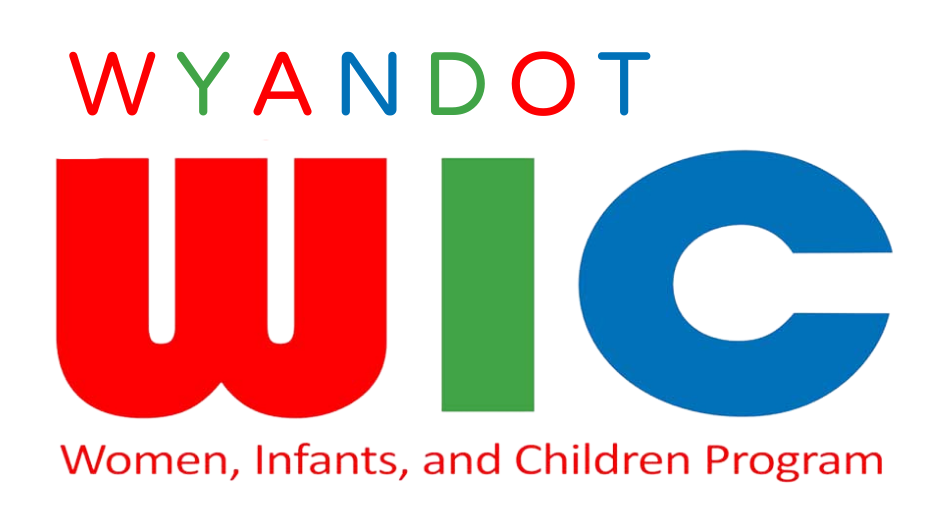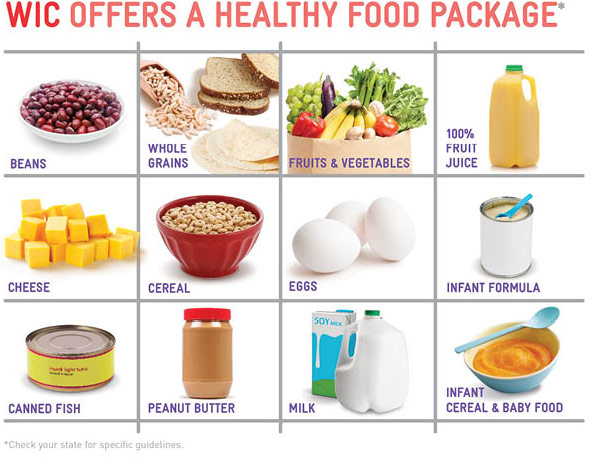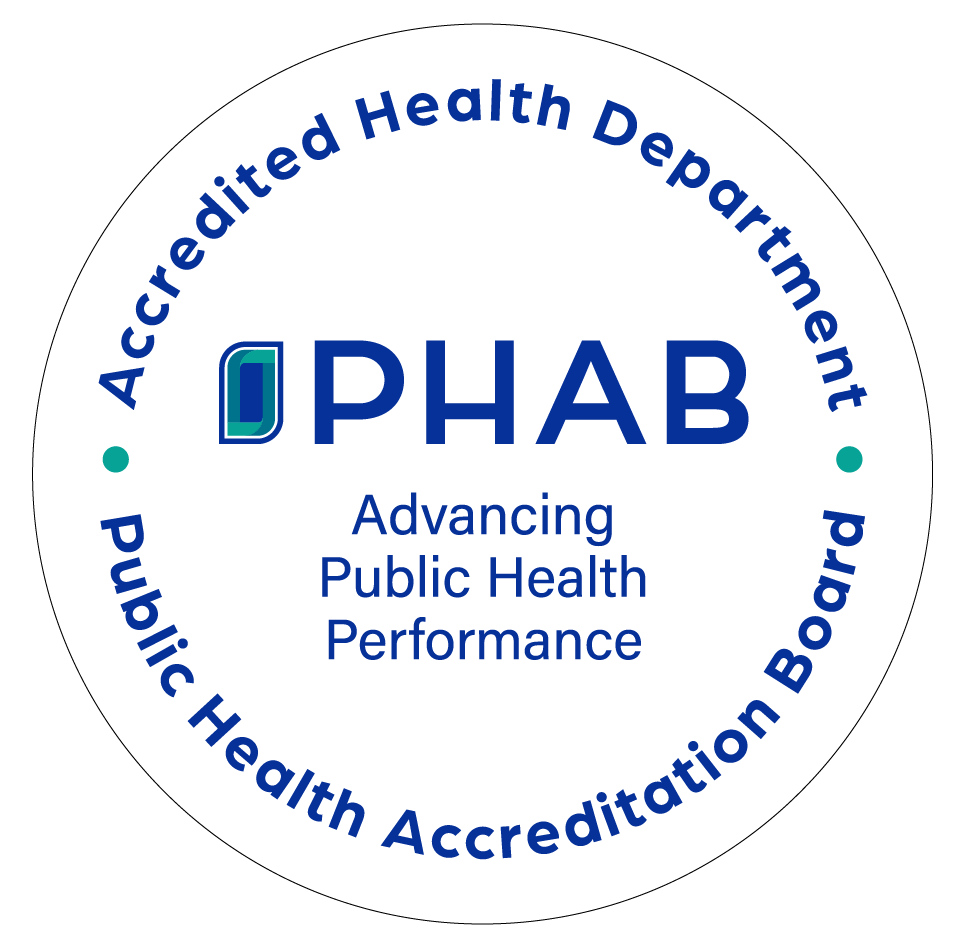
Call the Wyandot WIC office at 419-294-3341 to schedule an appointment.
You may contact WIC by calling 419-294-3341. The WIC office is located within the Wyandot County Public Health Department, at 127-A S. Sandusky Ave., Upper Sandusky, OH. The WIC office is open Tuesday, Wednesday, and Thursday from 8:30am-4:30pm.
The Supplemental Nutrition Program for Women, Infants, and Children (WIC) helps income eligible pregnant and breastfeeding women, women who recently had a baby, and infants and children up to the age of 5 years who are at medical or nutritional risk.
WIC is a federal program funded by the United States Department of Agriculture, administered by Ohio Department of Health, and operated locally as a program of Wyandot County Public Health.
The WIC program operates in all 88 Ohio counties and provides:

For more information on WIC, visit the Ohio Dept of Health website.
Wyandot County WIC is fortunate to have a Breastfeeding Peer Helper to provide new and expectant mothers and their support persons with information and advice on the wonderful benefits of breastfeeding. The Peer Helper, a paraprofessional who lives in the community and is part of the population served by WIC, was carefully selected based upon her years of personal breastfeeding experience along with knowledge in the areas of technique and counseling skills. She works closely with pregnant women, women in the early stages of breastfeeding, women who are weaning their babies, and their support persons. Please feel free to call the WIC office at 419-731-3217 to take advantage of this valuable resource!

USDA is an equal opportunity provider and employer.
In accordance with federal civil rights law and U.S. Department of Agriculture (USDA) civil rights regulations and policies, this institution is prohibited from discriminating on the basis of race, color, national origin, sex (including gender identity and sexual orientation), disability, age, or reprisal or retaliation for prior civil rights activity.
Program information may be made available in languages other than English. Persons with disabilities who require alternative means of communication to obtain program information (e.g., Braille, large print, audiotape, American Sign Language), should contact the responsible state or local agency that administers the program or USDA’s TARGET Center at (202) 720-2600 (voice and TTY) or contact USDA through the Federal Relay Service at (800) 877-8339.
To file a program discrimination complaint, a Complainant should complete a Form AD-3027, USDA Program Discrimination Complaint Form which can be obtained online at: https://www.usda.gov/sites/default/files/documents/USDA-OASCR%20P-Complaint-Form0508-0002-508-11-28-17Fax2Mail.pdf, from any USDA office, by calling (866) 632-9992, or by writing a letter addressed to USDA. The letter must contain the complainant’s name, address, telephone number, and a written description of the alleged discriminatory action in sufficient detail to inform the Assistant Secretary for Civil Rights (ASCR) about the nature and date of an alleged civil rights violation. The completed AD-3027 form or letter must be submitted to USDA by:
1. mail: U.S. Department of Agriculture Office of the Assistant Secretary for Civil Rights, 1400 Independence Avenue, SW Washington, D.C. 20250-9410; or
2. fax: (833) 256-1665 or (202) 690-7442; or
3. email: program.intake@usda.gov
This institution is an equal opportunity provider.
Para todos los demás programas de asistencia de nutrición del FNS, agencias estatales o locales y sus subreceptores, deben publicar la siguiente Declaración de No Discriminación: De acuerdo con la ley federal de derechos civiles y las normas y políticas de derechos civiles del Departamento de Agricultura de los Estados Unidos (USDA), esta entidad está prohibida de discriminar por motivos de raza, color, origen nacional, sexo (incluyendo identidad de género y orientación sexual), discapacidad, edad, o represalia o retorsión por actividades previas de derechos civiles.
La información sobre el programa puede estar disponible en otros idiomas que no sean el inglés. Las personas con discapacidades que requieren medios alternos de comunicación para obtener la información del programa (por ejemplo, Braille, letra grande, cinta de audio, lenguaje de señas americano (ASL), etc.) deben comunicarse con la agencia local o estatal responsable de administrar el programa o con el Centro TARGET del USDA al (202) 720-2600 (voz y TTY) o comuníquese con el USDA a través del Servicio Federal de Retransmisión al (800) 877-8339.
Para presentar una queja por discriminación en el programa, el reclamante debe llenar un formulario AD-3027, formulario de queja por discriminación en el programa del USDA, el cual puede obtenerse en línea en: https://www.fns.usda.gov/sites/default/files/resource-files/usdaprogram-discrimination-complaint-form-spanish.pdf, de cualquier oficina de USDA, llamando al (866) 632-9992, o escribiendo una carta dirigida a USDA. La carta debe contener el nombre del demandante, la dirección, el número de teléfono y una descripción escrita de la acción discriminatoria alegada con suficiente detalle para informar al Subsecretario de Derechos Civiles (ASCR) sobre la naturaleza y fecha de una presunta violación de derechos civiles. El formulario AD-3027 completado o la carta debe presentarse a USDA por:
(1) correo: U.S. Department of Agriculture Office of the Assistant Secretary for Civil Rights
1400 Independence Avenue, SW, Washington, D.C. 20250-9410; o
(2) fax: (833)256-1665 o (202) 690-7442; o
(3) correo electrónico: program.intake@usda.gov
Esta entidad es un proveedor que brinda igualdad de oportunidades.
